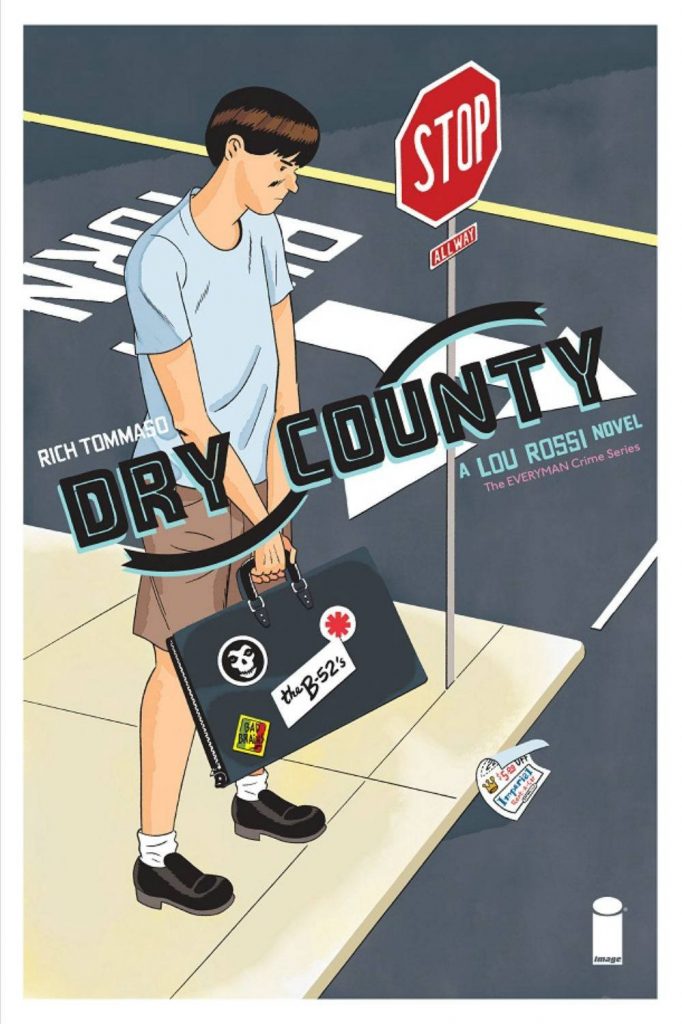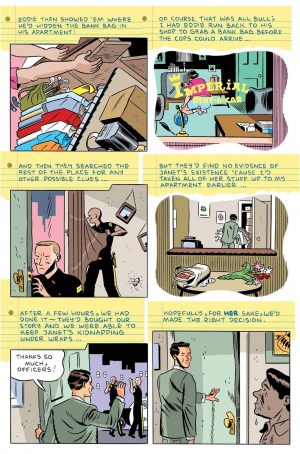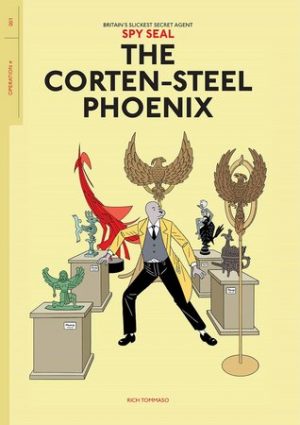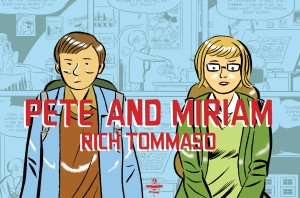Review by Ian Keogh
It’s 1990 in Miami and Lou Rossi is the gag cartoonist for the Miami Herald. He hates Florida, he hates the heat and he hates the nightclubs, but his life is altered by a chance meeting when doing his laundry. Janet is there, and over a few dates Lou learns the unfortunate circumstances of her coming to Miami, and how she wants out of a relationship. A few days after that Janet is abducted from Lou’s apartment, and there’s a ransom-style note warning him not to call the police.
Dry County works the theme of the novice thrown into circumstances beyond his control, but individually, as unusually for such stories Lou isn’t especially lucky or competent. Rich Tommaso has Lou tell us his own story, writing it down on the pages of a yellow legal pad, with illustrations separating the text. Lou’s an everyman, not sure what to do, but sure he wants Janet back, so he starts putting out feelers and asking questions.
At times the story seems almost incidental to the views of Florida, Tommaso sure making it look attractive for a place Lou hates. He uses bright, flat colours to bring it to life, along with many straight lines, which make the alligators stand out. Tommaso’s also keen on messing with the idea of what constitutes a crime story, the bright colours, for instance, contrasting the noir mood. Without special skills, much of what Lou does is a succession of dead ends edging him no closer to solving the mystery. It has a resolution, but that’s little to do with Lou, which is also interesting, as is most of the violence being a possibility that only rarely occurs.
A flashback opens the fifth chapter, showing the events Lou never entirely puts together, which is why it’s the only departure from Lou’s narration. It has to be that way to provide the answers, but it’s also compromised. Otherwise Tommaso provides a neat toying with form as he conveys Lou’s path, which seems to be one form of journey, but in fact proves to be another.





